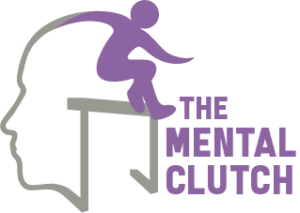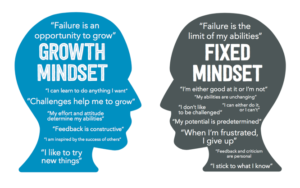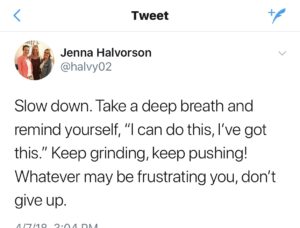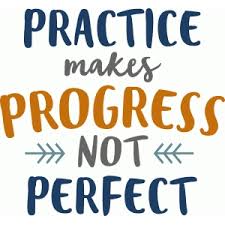Growing up I was the 3rd child of 6 kids. Those of you who have siblings can agree with how they are your best friends at times and your worst enemy the other times.
This is my younger sister Kayla.

Aint’ she a beaut?! She’s my inspiration for this weeks post!
Here’s the thing though; growing up we always tended to tease her and let her be the butt of our jokes. If you have siblings you might have a “scapegoat” sibling as well in your family. As we got older though I didn’t know how this could affect her.
After learning more about mindset and how powerful it is I started to think about my siblings. Could all of that teasing alter her mindset negatively and have her start to believe what we told her? Did I take part in potentially destroying her confidence?
We all have had negative things said about us and we have to agree that it hurts. Whoever said, “Sticks and stones may break my bones, but words can never hurt me,” was a COMPLETE liar who was never bullied or teased.
Words hurt.
How can we combat this so it doesn’t affect our confidence, self-esteem, self-worth, and our success? Well, we need to STOMP OUT THOSE ANTS!

Have you ever had ants in your kitchen before? I bet you normally don’t find just one. There are usually a whole line stampeding through your countertop. Am I right? It’s gross and we need to fight these annoyances before they multiply further.
In graduate school, my mentor, Cindra Kamphoff, told me that we all have ants in our minds as well. We all experience Automatic Negative Thoughts. In order to not let it affect us, we need to take control and FIGHT BACK! We need to stomp out those ants in our mind, just like we do in our kitchen. Exterminate them by using POSITIVE self-talk to overcome them.
“Talk to yourself, don’t listen.”
You have a choice here. You don’t have to listen to what the ants are telling you. Instead try this exercise to get rid of the ants before they continue to multiply:

——–
1. Catch them:
Catch the negative thoughts you are having. We need to NOTICE when ants are entering and taking over our minds. Once you notice and are self-aware of where your thoughts are you can move onto the next step.
2. Address them:
Look at the ant in the face and tell it to go away! Address whatever it is telling you and find ways to fight back. For example; if the ants are telling you that you can’t do it talk back to it by saying, “Yes I can do it with continuous effort and focus. I will show you!”
3. Release them:
Release the ant and make it focus on something else. Once you have addressed you need to let it go. Let the ant crawl away out of your mind the same way that it entered.
4. End them:
Now it is time to EXTERMINATE the ant. It has now left your mind and you need to tell yourself a positive affirmation. Replace it with purposeful positive affirmations such as, “You are beautiful,” “You’ve got this!”
My sister Kayla has been putting this plan into place and has been stomping out her ants. Remember that these ants are AUTOMATIC so they will come out of nowhere at times and instead of becoming upset and frustrated we need to TAKE CONTROL and kick them back out.
This past week Kayla saw the movie, “I Feel Pretty,” and posted the picture above with great positive self-talk statements to start her day feeling powerful, beautiful, and confident! Here was her caption,
“So many days we struggle with what we see in the mirror, but today I looked at that mirror and told myself that I am beautiful, I am intelligent, I am strong, I am worthy and guess what? Today I feel pretty. ?”
What are you telling yourself? May we all learn from Kayla and remember, “talk to yourself, don’t listen to the ANTS!”

 5 ways to develop a growth mindset:
1. Focus on effort.
If you are a coach, parent, or athlete praise the amount of effort that is being put in. If we can change our focus to effort instead of the outcome such as a grade on a test, how heavy you lifted, how fast you ran, or comparing yourself to how others do we can fuel ourselves from our IMPROVEMENTS. Remember, “hard work beats talent when talent doesn’t work hard.” Trust that if you consistently put in your best effort the end results will come. Change your mentality from, “I’m not strong because I only lifted this much..” to, “I warmed up properly and gave my best effort on that set. With continued practice I will be able to lift more over time.”
2.Become process-focused.
Focus on the process over the outcome. One way to do this is by creating goals that are process-focused rather than outcome-focused. Once you’ve identified your outcome goal you need to create and focus on process goals that will direct you to where you want to go. Once you are able to meet the process goals the outcome goal will be met naturally at times. It is like going on a road trip. We might know WHERE we want to go but we have to figure out and focus on the turns we need to make to GET there. Keep your focus on the process over the outcome/destination.
3. View setbacks as comebacks.
Keep persisting and overcome challenges. Understand and accept that the world of sport is going to bring along obstacles and setbacks. It might be an injury, a losing record, a slow start to the season, or being out of shape. Instead of focusing on the negatives and giving up, buckle down and keep working at it. Continue to give the best effort you can and remind yourself that whatever setback you are experiencing is a chance to make a major comeback. Use the setbacks as motivation and become more determined to keep moving forward.
4.Fail forward
Learn from your mistakes and failures. Understand that the only way we can learn to achieve success and meet our goals is to experience failure. Use failures as teaching moments and take away something from that experience that you can apply in the future. Each time you fail, you are one step closer to achieving. In every game or performance there will always be a winner and a loser, and we need to understand that we can’t win all the time. We have to learn how to lose, how to learn from it, and how to keep pushing to be better and stronger next time.
5.Be open to feedback
Make sure that you are asking for feedback from your coaches and teammates. Understand that whatever feedback they give you is for your BENEFIT and it is not to upset you or make you feel less than. Those with a fixed mindset have a difficult time receiving feedback and become frustrated compared to those with a growth mindset who strive for constant improvement. People with a growth mindset understand that there is no such thing as “perfection” and that there’s always room for improvement. They seek out ways to improve by asking others for their opinions, advice, and feedback to increase their abilities. Trust the people around you and take the time to listen and apply what they are telling you.
Put it into practice!
One great way to develop a growth mindset is to seek out new challenges and try new things that you are not naturally good at. This way you will be more likely to experience setbacks and failures and practice the skills necessary to develop a growth mindset. Use this experience towards skills and abilities you have not yet developed and enjoy the improvements, not matter how small. Trust the process and know that with continued effort you CAN and WILL develop the skills and abilities you are working towards.
Want to learn more about Carol Dweck and her work on mindset? Click to watch her
5 ways to develop a growth mindset:
1. Focus on effort.
If you are a coach, parent, or athlete praise the amount of effort that is being put in. If we can change our focus to effort instead of the outcome such as a grade on a test, how heavy you lifted, how fast you ran, or comparing yourself to how others do we can fuel ourselves from our IMPROVEMENTS. Remember, “hard work beats talent when talent doesn’t work hard.” Trust that if you consistently put in your best effort the end results will come. Change your mentality from, “I’m not strong because I only lifted this much..” to, “I warmed up properly and gave my best effort on that set. With continued practice I will be able to lift more over time.”
2.Become process-focused.
Focus on the process over the outcome. One way to do this is by creating goals that are process-focused rather than outcome-focused. Once you’ve identified your outcome goal you need to create and focus on process goals that will direct you to where you want to go. Once you are able to meet the process goals the outcome goal will be met naturally at times. It is like going on a road trip. We might know WHERE we want to go but we have to figure out and focus on the turns we need to make to GET there. Keep your focus on the process over the outcome/destination.
3. View setbacks as comebacks.
Keep persisting and overcome challenges. Understand and accept that the world of sport is going to bring along obstacles and setbacks. It might be an injury, a losing record, a slow start to the season, or being out of shape. Instead of focusing on the negatives and giving up, buckle down and keep working at it. Continue to give the best effort you can and remind yourself that whatever setback you are experiencing is a chance to make a major comeback. Use the setbacks as motivation and become more determined to keep moving forward.
4.Fail forward
Learn from your mistakes and failures. Understand that the only way we can learn to achieve success and meet our goals is to experience failure. Use failures as teaching moments and take away something from that experience that you can apply in the future. Each time you fail, you are one step closer to achieving. In every game or performance there will always be a winner and a loser, and we need to understand that we can’t win all the time. We have to learn how to lose, how to learn from it, and how to keep pushing to be better and stronger next time.
5.Be open to feedback
Make sure that you are asking for feedback from your coaches and teammates. Understand that whatever feedback they give you is for your BENEFIT and it is not to upset you or make you feel less than. Those with a fixed mindset have a difficult time receiving feedback and become frustrated compared to those with a growth mindset who strive for constant improvement. People with a growth mindset understand that there is no such thing as “perfection” and that there’s always room for improvement. They seek out ways to improve by asking others for their opinions, advice, and feedback to increase their abilities. Trust the people around you and take the time to listen and apply what they are telling you.
Put it into practice!
One great way to develop a growth mindset is to seek out new challenges and try new things that you are not naturally good at. This way you will be more likely to experience setbacks and failures and practice the skills necessary to develop a growth mindset. Use this experience towards skills and abilities you have not yet developed and enjoy the improvements, not matter how small. Trust the process and know that with continued effort you CAN and WILL develop the skills and abilities you are working towards.
Want to learn more about Carol Dweck and her work on mindset? Click to watch her 




